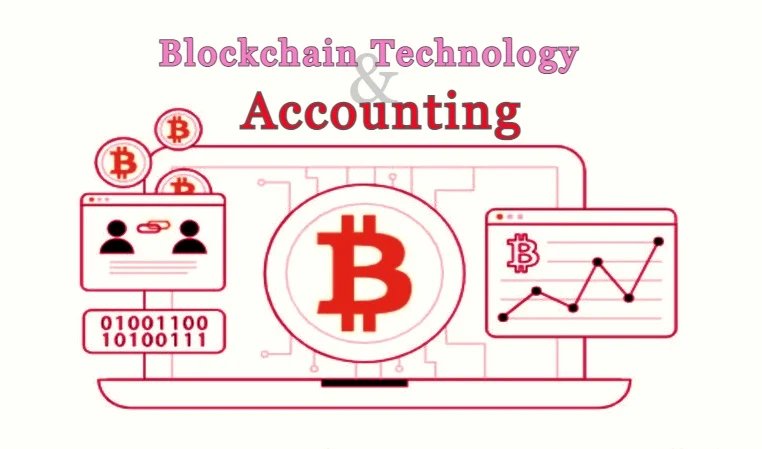What are the Potential Impacts of Blockchain Technology on Accounting?
Blockchain technology has the potential to impact all processes of accounting, auditing, and bookkeeping. Let’s understand how blockchain is changing the accounting industry.
Blockchain Technology and its Potential Impact on Accounting
Cryptocurrencies are rapidly gaining popularity and are currently the most recognizable example of blockchain technology in use. Despite this, the accounting rules surrounding cryptocurrencies have not kept up with the industry's evolving needs.
There is no consensus on the precise accounting treatment of cryptocurrencies, presenting a significant challenge.
Generally accepted accounting principles (GAAP) classify cryptocurrencies as intangible assets and record them at cost, with the asset's impairment being accounted for over time. However, this approach may not accurately reflect the economic value of cryptocurrencies held as investments, especially if they appreciate quickly in value.
What is Blockchain Technology?
Imagine a world where you can confidently own and transfer assets without relying on any central authority to ensure the safety and integrity of your transactions. That's where blockchain technology comes in, providing a decentralized and distributed ledger that's virtually tamper-proof.
By linking blocks of transactional data in chronological order, blockchain creates a chain of information that can't be altered or corrupted easily. With this technology, organizations and individuals across the globe can safely record and share their valuable data, free from the risk of unauthorized access or manipulation. It's a secure, efficient, and transparent way of exchanging assets and information, and the possibilities for its application are endless.
To leverage the potential of blockchain technology, many businesses are partnering with a blockchain development company that can help them create customized solutions specific to their needs.
The Potential Impact of Blockchain on Accounting
Blockchain has the potential to revolutionize the field of accountancy by providing a secure and transparent way to record financial transactions.
One of the key advantages of blockchain is its ability to maintain an accurate, tamper-proof ledger that can be accessed by multiple parties simultaneously.
In accountancy, this could mean that financial data can be recorded in real-time and shared with stakeholders such as auditors, regulators, and investors. This would help to increase transparency and reduce the potential for fraud or errors in financial reporting.
Since blockchain is decentralized and secure, it can help to reduce the costs and risks associated with intermediaries such as banks and payment processors.
In particular, the use of smart contracts, which are self-executing contracts with the terms of the agreement between buyer and seller being directly written into lines of code, can automate many accounting processes such as accounts payable and receivable. This can save time and reduce the potential for errors in these processes.
Blockchain technology also has the potential to significantly improve crypto bookkeeping and accounting services for cryptocurrency businesses. This is because blockchain enables transactions to be initiated, processed, authorized, recorded, and reported in a transparent and secure manner.
By leveraging the blockchain's distributed ledger, all parties involved in a cryptocurrency transaction can have access to the same information, making it easier to verify and reconcile transactions.
However, while the potential of blockchain in accountancy is significant, it is important to note that there are still some challenges to be addressed. These include issues related to scalability, interoperability, and regulatory frameworks.
Nonetheless, the continued development and implementation of blockchain technology in the field of accountancy holds great promise for the future of financial reporting and transparency.
Takeaways
The integration of blockchain technology with artificial intelligence and machine learning is taking place at an accelerating pace, which has the potential to revolutionize the accounting sector.
Governments are now acknowledging the significance of blockchain by introducing related tax regulations.
Even if you don't have any experience with cryptocurrency, blockchain accounting can cover traditional currencies such as US dollars and other assets.
It's essential to have a basic understanding of blockchain, as it keeps you updated about the latest advancements and prepares you for any future impacts on your business.
If you find this topic fascinating, familiarizing yourself with bookkeeping will give you a clearer insight into the advantages of blockchain in accounting.

